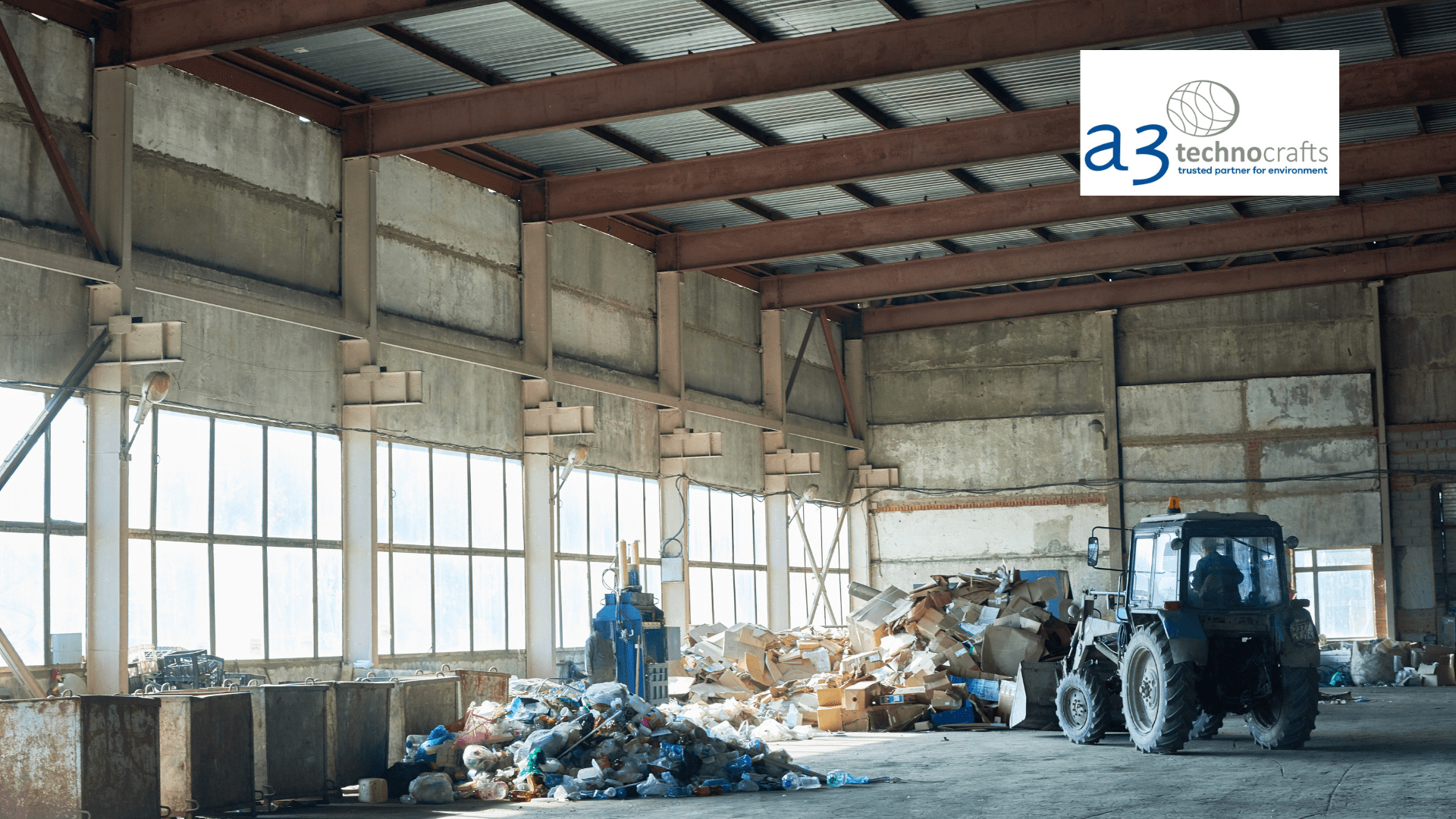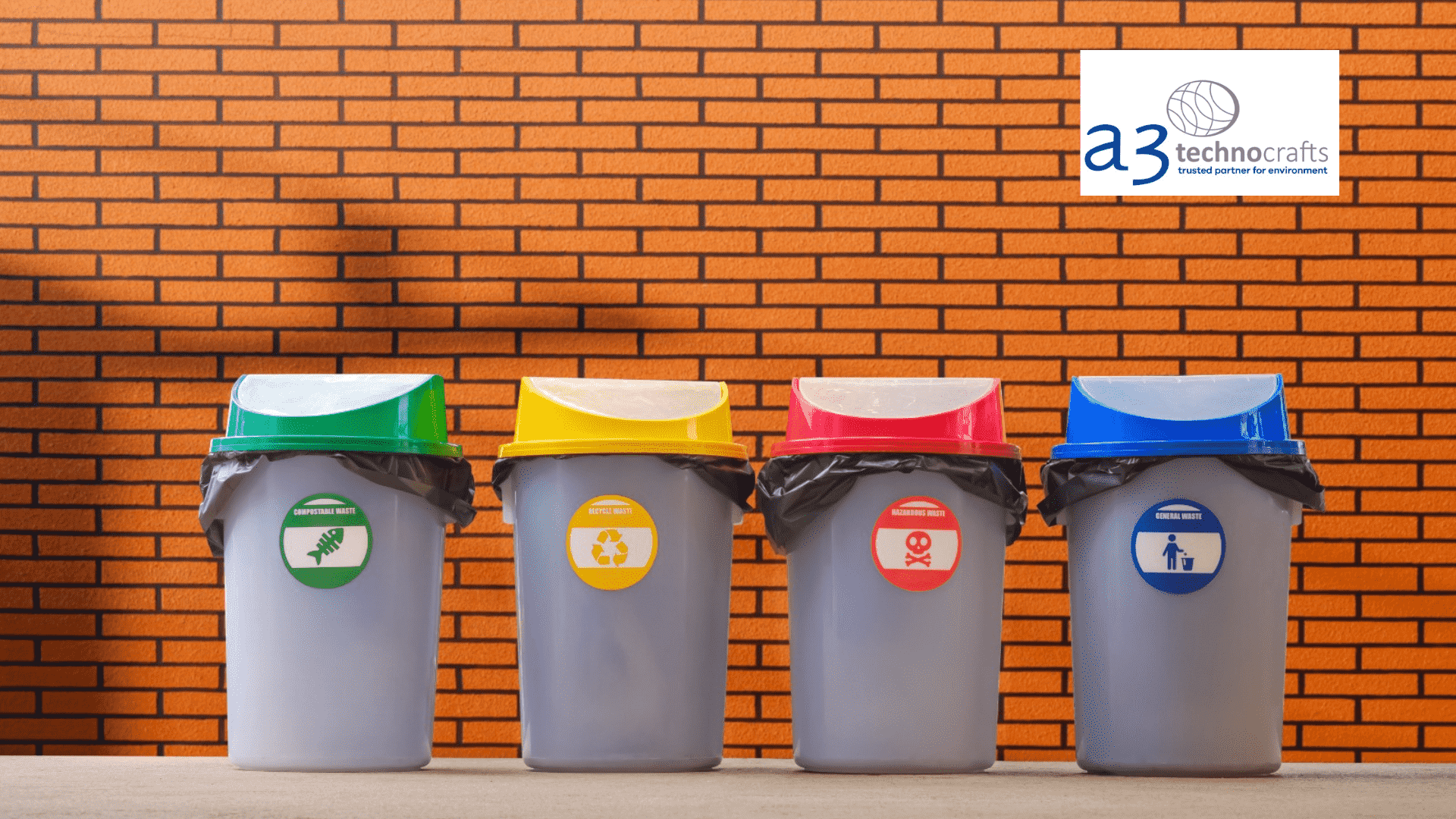In an era where sustainability and environmental consciousness are becoming paramount, businesses across industries are recognizing the importance of waste management.
Industrial Waste Audit is a powerful tool that enables companies to identify inefficiencies, reduce waste and adopt greener practices. This blog post explores the concept of a waste audit, its significance, the benefits it offers to companies and how A3 Technocrafts Pvt Ltd, a leading waste management and assessment service provider, can assist businesses in their sustainability journey.
Understanding Industrial Waste Audit
An Industrial Waste Audit is a systematic assessment of a company’s waste generation, disposal methods and resource utilisation. It involves examining various waste streams, such as solid waste, wastewater, energy consumption and recycling processes, to identify areas of improvement and develop strategies for waste reduction.
What benefits does Waste Audit offer ?
Opting for an Industrial Waste Audit offers a number of benefits including identification of inefficiencies, reduction in waste generation, helping them to comply with environmental regulations and improve their overall efficiency leading to overall cost reduction and creating a positive impact on the environment.
To let you understand better, let’s dive deeper discussing waste audit’s benefits:
1. Environmental Compliance:
Companies face increasing pressure to comply with stringent environmental regulations. Conducting an Industrial Waste Audit ensures that businesses are adhering to these regulations and minimising their environmental footprint.
2. Cost Reduction:
Waste generation and inefficient practices result in unnecessary costs. An Industrial Waste Audit allows companies to identify areas where waste can be reduced, leading to significant cost savings through improved resource management and streamlined processes.
3. Enhanced Environmental Soundness:
Environmental Soundness or viability has become a key differentiator for businesses. An Industrial Waste Audit helps organisations identify opportunities for adopting sustainable practices, reducing their carbon footprint and aligning with customer expectations for environmentally responsible companies.
4. Waste Reduction and Recycling:
An industrial waste audit enables companies to find opportunities for recycling and waste reduction. Companies may reduce the quantity of trash sent to landfills and support the circular economy.
5. Improved Operational Efficiency:
Identifying inefficiencies in waste management processes leads to streamlined operations. Through Industrial Waste Audits, companies can optimise resource utilisation, improve workflow and also enhance overall efficiency & productivity.
6. Risk Mitigation:
An Industrial Waste Audit helps identify potential risks associated with improper waste disposal or hazardous materials. By addressing these risks proactively, companies can avoid facing environmental legalities and reputational damages.
7. Stakeholder Engagement:
Embracing greener practices positively influences a company’s stakeholders, including employees, customers and investors. An Industrial Waste Audit showcases an organisation’s commitment to environmental responsibility, fostering positive relationships with stakeholders.
A3 Technocrafts: Empowering Viable Waste Management
As a leading waste management and assessment service provider, A3 Technocrafts Pvt Ltd offers comprehensive Industrial Waste Audit solutions tailored to meet the specific needs of businesses. Their expertise spans across various sectors, including manufacturing, hospitality, healthcare and retail. Here’s how A3 Technocrafts Pvt Ltd can help companies:
1. Customized Industrial Waste Audit:
A3 Technocrafts conducts detailed Industrial Waste Audits, taking into account a company’s unique waste generation patterns, industry-specific requirements and regulatory compliance. Their team of experts identify inefficiencies and propose actionable strategies to minimise waste.
2. Process Optimization and Training:
We also help businesses adopt optimal waste management practises, optimise workflows and train staff on resource conservation. This gives businesses the capacity to build a sustainable culture within their staff.
3. Technology Integration:
Utilising cutting-edge waste management technologies, A3 Technocrafts helps companies adopt advanced waste tracking and monitoring systems. This enables real-time data analysis, performance tracking and informed decision-making for continuous improvement in waste management practices.
In conclusion, an Industrial Waste Audit is a crucial tool for businesses to identify inefficiencies, reduce waste, comply with environmental regulations, minimise costs, enhance sustainability and engage stakeholders. A3 Technocrafts Pvt Ltd offers customised waste audit solutions, process optimization, training and technology integration to empower sustainable waste management practices and assist companies in their sustainability journey.
Follow Us:


